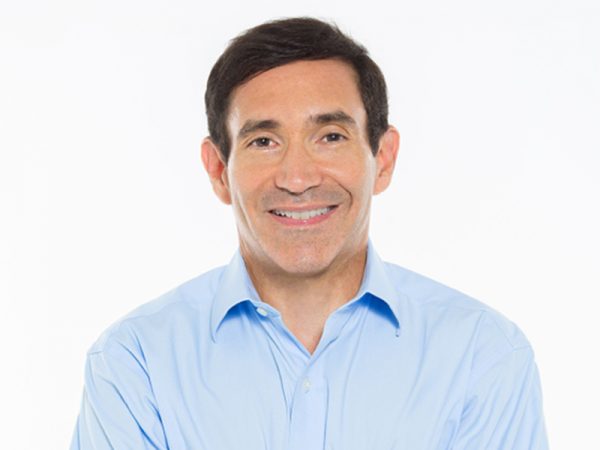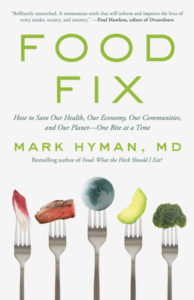In my book review of Supersized Lies by Robert J. Davis, I mentioned that I was going to be doing an interview with him. Unfortunately, he had to cancel our interview at the last minute, but he did provide some answers to some of the questions I had provided beforehand. You can read those below. I will also direct you to my youtube video at Deepak Saini Health channel discussing these responses with a little more commentary regarding his responses.
Here are the authors responses:
- How did you get interested in doing the type of research that you do and the topics you cover?
Since college, I have been passionate about personal health and wellness. I am a fitness enthusiast and pay careful attention to what I eat. Professionally, I have worked many years as a health journalist and have academic training in public health. So in my work, I combine my personal passion with my educational background to sift through research and help people understand what the science actually shows so they can make more informed decisions.
- In the introduction chapter you discuss biases that people including scientists have, and certainly myself included, so my question is, what are your biases?
Great question! One bias is that I believe in research and put little stock in anecdotal observations and opinions as ways to evaluate the effectiveness of health-related interventions. While I recognize that scientific research is not perfect, it’s the best tool in the history of humankind to get us closer to the truth about what benefits our health and what doesn’t. The key is to know how to interpret it properly, which includes distinguishing among studies (not all are created equal) and looking at what scientists call the totality of the evidence, rather than fixating on individual studies.
Another bias is that I view obesity and weight management through the lens of health. While some see it largely as a cosmetic issue – e.g. how do I lose 30 pounds so I’ll look good for an upcoming event? – I view weight management as a matter of improving our health and well-being, and evaluate weight-control measures based on their ability to achieve these ends, both short-term and long-term.
- How do you think things got out of control regarding weight gain?
I think it’s a combination of factors. Certainly the ubiquity of food plays a role. Seemingly everywhere we go, from the office to the airport, there’s food available. And the portions served by many restaurants are too large. The food industry has also played a role, flooding the marketing with highly processed foods (which are more likely to promote weight gain), and bombarding us with advertising to promote them. In some cases these processed foods are misleadingly portrayed as weight friendly, so we end up eating even more of them and paradoxically making the problem worse. Finally, as I argue in my book, I think bad advice has contributed to the obesity epidemic by pushing methods such as fad diets that may result in short-term weight loss but ultimately lead to even greater weight gain.
- One of the Myths discussed is Weight status is contagious, I liken it to the saying you are the average of the 5 people you spend the most time with. Can you elaborate?
Research suggests that if our friends, family members, or significant others become obese, we’re more likely to become obese so as well. Conversely, we’re more likely to lose weight if people close to us are doing so. One reason is that our behaviors tend to mirror those of people around us, often in ways we’re not aware of. What we consider a “normal” or “acceptable” weight may go up or down depending on the weights of people around us.
- You discuss the limitations of BMI, what would be a better, while still accessible measure or metric?
There’s no ideal alternative to BMI, which is why we continue to rely on it so heavily despite its shortcomings. One alternative is waist circumference, which research suggests may be better than BMI for estimating body fatness and assessing disease risk. The general rule of thumb is that the men should have a waist size of no more than 40 inches, and nonpregnant women no more than 35 inches. But there’s debate about whether these thresholds apply to all ethnic and racial groups.
- In my review of this book, I mentioned what a great idea it is for a person to track where they were, who they were with and what they were doing while they were having their meals. Why do you think this is so important?
We’re often unaware of how our surroundings influence what and how much we eat. Perhaps you eat more when you’re alone than when you’re with a group of people, for example. Or maybe you tend to consume more junk food when you eat in the car or are in a hurry. By keeping a journal that tracks such information, you can gain greater awareness of your eating patterns and change your behavior accordingly.
- You mention that there is no single best diet for everyone. I agree wih that. Can you explain some of the nuances that could help people choose one way of eating over another?
Any number of diets, from keto to paleo to intermittent fasting, can be effective in the short-term for weight loss and help kick-start people’s efforts. But what really matters is how sustainable the diet is over the long run, which is where the vast majority fall short. What’s also important is how healthful the diet is. An eating plan that restricts things like fruits, vegetables, whole grains, beans, or other nutrient-packed foods can deprive your body of nutrients it needs and undermine your health.
- From going through the book, I get a sense of what you believe or follow in regards to nutrition, but you never officially state it, so my question is, how do you eat?
I try to practice what I preach, eating a whole foods diet that’s relatively high in fiber, low in sugar, and has plenty of protein, with foods such as vegetables, fruits, whole grains, nuts, beans, fish and chicken. In addition I try to minimize junk foods and sweets, though that doesn’t mean I never eat things like ice cream, chips or cookies. I just make them occasional treats and enjoy them in limited amounts.
Again, I would direct you to the video where I add some more commentary. If you want to dispel more of the Myths around health and not just weight loss and truly become the Best Version of Yourself, then contact me and lets have a conversation.




